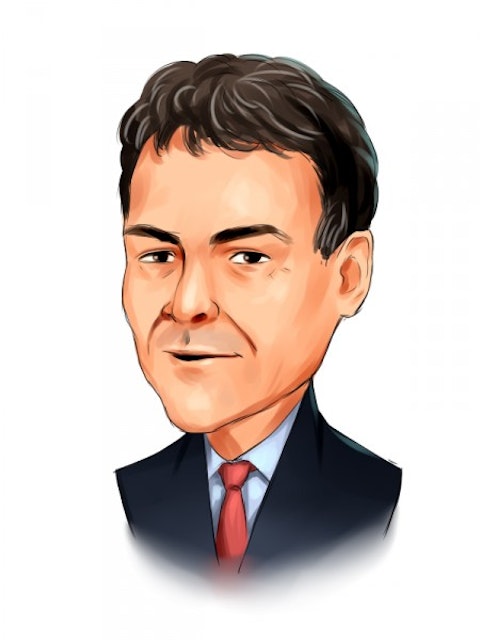According to recent 13F filings by hedge funds and notable investors, it appears that the overall interest in the auto parts industry is robust, especially for Delphi Automotive PLC (NYSE:DLPH). We expect that the rising demand in U.S. autos will be the driving force in pushing the fortunes of auto parts suppliers higher. Despite a slow global economy, the average age of vehicles – currently around 11 years old – on the road is still rising, leading to pent up demand related to replacement needs. An estimated 14 million light vehicles are expected to be purchased by the end of 2012, which should rise to 15 million in 2013.
Delphi trades well below its peers at 9x earnings, compared to top competitors Johnson Controls (15x) and Visteon (76x). Delphi posted 3Q results well above consensus, coming in at $0.84 compared to estimates of $0.73. Recent restructuring plans should help drive cost savings – nearly $70 million in 2013 – while the acquisition of FCI Group’s motorized vehicles division (MVL) should add around $0.20 to 2013 EPS. The company’s total restructuring cost will come in around $250 million, with $80 million used to integrate MVL. A large part of restructuring expenditures will go toward revamping the European operations, where the slowdown in Europe has provided a great opportunity to do so at a reduced cost. Check out all the hedge funds in love with Delphi.
Although Visteon Corp (NYSE:VC) does trade at an outsized P/E, the premium on its shares is being driven by the potential for a breakup. The auto parts company is relatively flat year to date, despite analyst estimates of nearly 50% upside should the company effectively divest its non-core businesses. Visteon also appears to be a good value based on a very low forward P/E of 14x, suggesting investors are over-discounting next year’s growth. Check out which billionaire recently upped their Visteon stake by 40%.
Other notable auto parts companies include Johnson Controls, Inc. (NYSE:JCI), Autoliv Inc. (NYSE:ALV) and Lear Corporation (NYSE:LEA). Johnson Controls is expected to see sales up 5% in 2012 despite weak auto sales. Over the longer term, Johnson expects to increase outsourcing and see growth from its battery segment. Johnson does trade above Delphi at 15x earnings, but one bright spot is its 2.8% dividend yield.
Autoliv, the Stockholm-based auto parts company, has one of the lowest long term debt to capitalization ratios at less than 10%. Although its relatively low 11x P/E and 3%+ dividend yield makes the company attractive on the surface we remain cautious. The auto-related company was able to grow earnings over 20% a year over the past half-decade, but analysts expect five-year earnings to grow at only 1% annually going forward.
Lear’s latest quarterly EPS was a positive beat, as the company posted earnings of $1.29 a share compared to estimates of $1.21. Even so, we remain reserved on our outlook of Lear given its five-year growth outlook. For the last five years Lear grew EPS at over 20% annually, but is only expected to grow EPS over the next five years at 5%.
The fund interest in Delphi was more robust than any other auto parts company. Delphi saw Elliott Management and Paulson & Co. as the top two 3Q shareowners with over 25 million shares each. At the end of 3Q there were thirteen funds we track that had over 5% of their 13F invested in Delphi – both Silver Point Capital and Monarch Alternative had over 45% of their 13F in Delphi. Two new funds buying large stakes of Delphi were Centerbridge Partners and Oaktree capital, each buying over 10 million shares. Delphi is also one of billionaire David Einhorn’s top picks.
We believe that the auto parts industry will see a positive impact from the rise in auto sales not just in the U.S., but also in China and emerging economies, as the global recovery continues slowly but surely. Delphi appears to be the best-in-industry on a valuation and fund interest basis, but Visteon is also worth looking at given the company’s renewed interest in unlocking shareholder value.






